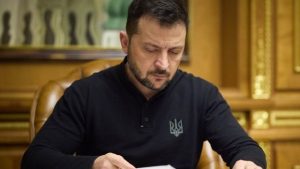Volodymyr Zelensky has made a bold accusation that could reshape international discourse on the war in Ukraine. Speaking at a recent press briefing, providing intelligence gathered by military intelligence to support his statement. According to Zelensky, this includes gunpowder, artillery, and indications of Chinese involvement.
Chinese Foreign Ministry statements as “groundless,” reiterating that China has never provided lethal aid to any side in what Beijing continues to label the “Ukrainian crisis.”
Zelensky, however, remained firm. He reminded the global audience of a conversation with during which Xi reportedly promised not to support Russia militarily. “He gave me his word,” Zelensky said, “but now we see different facts.” He added that further evidence would be made public soon, including allegations of Chinese-manufactured drones being used by Russian forces in Ukraine.
China’s stance on the war has long been ambiguous. While officially neutral, Beijing has with Moscow. Though China denies sending arms, Western intelligence and recent NATO reports suggest otherwise. China was accused of being a “decisive enabler” of Russia’s military.
Moreover, Vlasiuk stated that around 60% of foreign components found in captured Russian weapons originate from China. These parts include essential items used in drones, missile systems, and surveillance equipment. Despite civilian technologies with military applications.
There are also reports were Chinese nationals. While unverified, this has further intensified questions about China’s real role in the war.
Zelensky’s statements mark a crucial moment in the ongoing conflict. Not only do they challenge China’s diplomatic narrative, but they also test the credibility of promises made by Beijing. If confirmed, these allegations may lead to stronger international pressure on China and further complicate its global relations.
As the war in Ukraine grinds on, Zelensky continues to position himself not only as a wartime leader but as a global voice for accountability. His public denunciation of Chinese involvement reflects a strategic pivot — appealing to international actors to reassess their stance on countries indirectly fueling the conflict.





